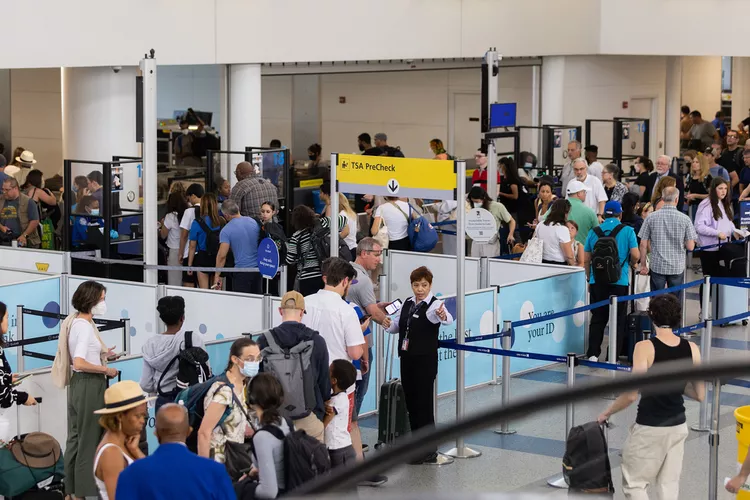Summary
- Impact of Government Shutdown – The implications of a potential government shutdown on air travel and national parks.
- Air Traffic Control Concerns – Discussion on how staffing shortages may worsen.
- Traveler Responses – Insights into how American travelers are adjusting their plans.
The shutdown would take effect on Oct. 1 if lawmakers don’t pass a federal budget or stopgap measure.
As the federal government inches closer to a government shutdown, travel will remain largely the same for Americans, if it indeed happens. However, travelers may feel the effects in various situations.
This week, Transportation Secretary Pete Buttigieg warned that a shutdown would exacerbate the current air traffic control staffing shortage, resulting in the furlough of 1,000 air traffic controllers who are currently undergoing training in an interview with Politico.
“A shutdown would halt all of that progress,” Buttigieg told Politico. “It would mean we have to immediately stop training air traffic controllers and furlough 1,000 controllers who are already in the training pipeline.”
Moreover, Buttigieg added that even a brief shutdown lasting “a few days” would jeopardize the achievement of staff and hiring targets for the upcoming year.
Airlines for America, which represents major carriers across the country, has reported that the New York Terminal Radar Approach Control facility remains only 54 percent staffed. Consequently, the FAA has indicated it is collaborating with the National Air Traffic Controllers Association (NATCA), the union representing controllers, to resolve the issue.
The FAA has informed GoTravelDaily that the agency plans to hire 1,800 air traffic controllers next year, an increase from the 1,500 controllers hired this year.
The Impact on Day One
The shutdown would commence on Oct. 1 if lawmakers do not pass a federal budget or stopgap measure.
Initially, air travelers are not likely to notice the effects because air traffic controllers and Transportation Security Administration officers are classified as “essential” employees and will continue working, albeit without pay temporarily. However, the longer the shutdown lasts, the larger the potential impact may become for travelers.
“If I’m a TSA agent, I am coming to work because I’m essential, but I’m not getting paid. After a certain point — and this happened in 2019 — some people called out sick, resulting in bigger issues,” said Katy Nastro, a travel expert with Going.com.
Nastro explained that the “breaking point” typically occurs after about two weeks. “We don’t want this to happen, but the old adage ‘pack your patience’ might come into play the longer this continues,” she added.
National Parks May Be the Most Affected
Travelers might immediately notice an impact in national parks. Nastro pointed out that about a third of national parks closed down during the 2018 shutdown.
“For the more popular ones, the highly trafficked national parks have contingency plans. However, that is not a guarantee for all of the parks,” Nastro noted. “It’s essentially up to the state.”
For instance, Arizona’s Governor Katie Hobbs has stated intentions to provide funding to maintain Grand Canyon National Park open according to The Arizona Republic.
“Arizona should not have to suffer because of the federal government’s inaction,” Hobbs expressed. “The Grand Canyon is a pillar of our state, providing good-paying jobs for hundreds of Arizonans while showcasing one of the seven natural wonders of the world to visitors. I am proud to offer resources to keep the park open and committed to ensuring Arizonans are protected from Washington’s failure.”
It remains uncertain which national parks will stay open in the event of a shutdown, but past experiences can offer some guidance. In 2018, Yellowstone National Park continued welcoming visitors, yet closed all government-operated facilities and ceased staffing entrance stations.
American Travelers Are Canceling Plans
A government shutdown may not directly impact many travel aspects initially — particularly private companies like Amtrak and cruise lines — yet this hasn’t stopped 60 percent of Americans from indicating they would cancel or avoid air travel if a shutdown occurs, the U.S. Travel Association shared with GoTravelDaily.
“I believe it’s crucial for us to help people understand the consequences of their choices,” U.S. Travel Association CEO Geoff Freeman said during an address at the Skift Global Forum 2023. “We predict that the travel economy may lose $140 million a day due to the impending situation.”





